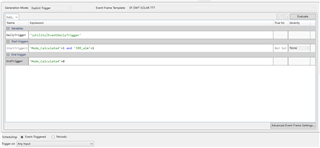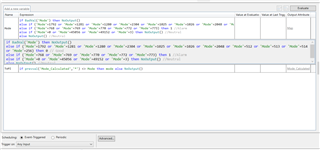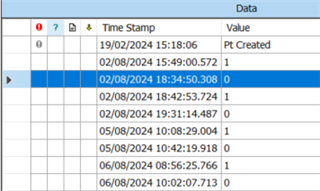I have a simple EFG analysis: 
It has only three trigger: 'Daily Trigger' which is a tag written everyday at 6:00 AM, but with a Timestamp of 12:00PM (so 6 hour before), 'Irr_alm' a flag tag used to identify day by night (is 1 during the day and 0 during the night, I don't think is important in this case), and the last one which is a calculated tag:

Here, the trigger is only 'Mode' which is a tag given by our customer (it's coming from a PItoPI interface).
So that's the situation which is relative simple, now the issue I'm having is that for some days of August the EFG analysis seems to have lost some triggers from 'Mode_Calculated'.
Here are the EF generated in real time during that period:

Here the EF I was expecting, based on Preview:

Also the Time Series Data of 'Mode_Calculated':

I don't understand why it seems that on 02/08 and 05/08 the EFG analysis seems to lost the trigger of the mode_calculated, but only on the ending trigger, 'cause the start of the events is correct, also the end time on the real time generated events is perfectly aligned with the Daily Trigger. I really don't know what's happening here.
Also there is no Automatic Backfilling on the analyses.
Thanks for the help,
Michele


